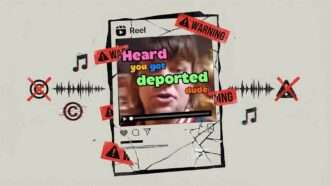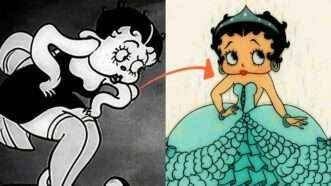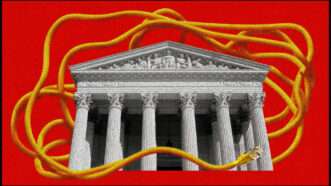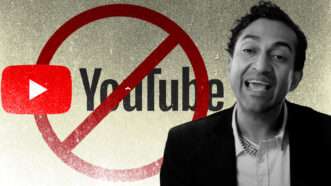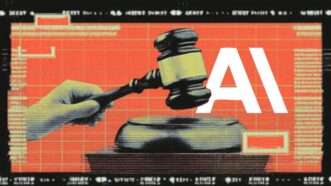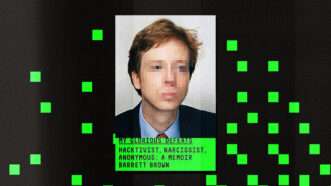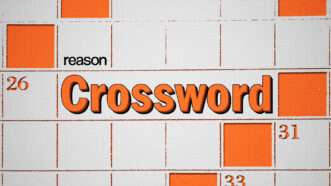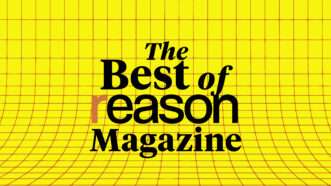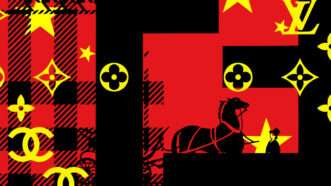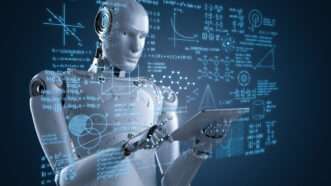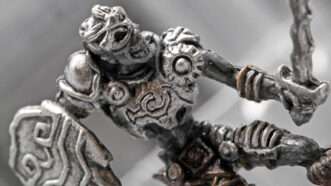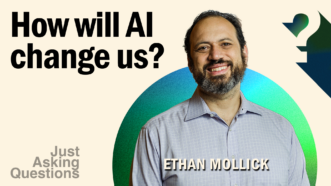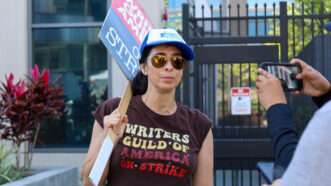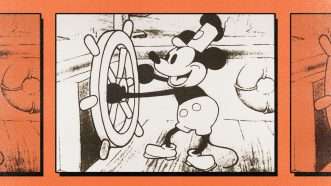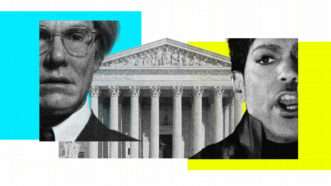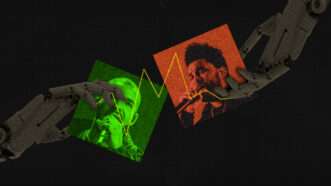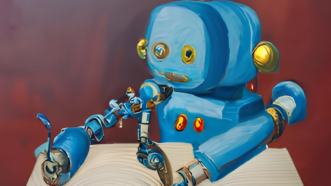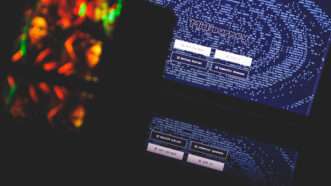Copyright
Judge Lets Blade Runner 2049 Copyright Suit Against Elon Musk and Tesla Move Forward
The ruling makes it less likely for copyright suits involving generative AI to be dismissed, discouraging use of the technology with the specter of costly legal fees.
The Trump Administration's Deportation Reels Keep Getting Copyright Strikes for Using Music Without Permission
Without any real consequences for copyright infringements, the Department of Homeland Security doesn't have much incentive to follow the law.
Betty Boop Enters the Public Domain, but Only as a Dog
The cartoon's bizarre saga illustrates what's wrong with modern copyright law.
The TRUMP AMERICA AI Act Is Every Bit As Bad As You Would Expect. Maybe Worse.
Sen. Marsha Blackburn’s latest is an anti-tech omnibus, combining years' worth of dangerous policy ideas into one big, bad bill.
SCOTUS Tackles Illegal File Sharing, Internet Music Piracy, and Copyright Law
Plus: It’s webathon time.
The U.S. Can't Afford AI Copyright Lawsuits
It's time for President Trump to invoke the Defense Production Act and resolve the crisis.
FDA Official Pressures YouTube Into Removing a Channel For Posting His Own Vaccine Comments
Not long ago, conservatives were rightly concerned about jawboning. Now they're apparently happy to take part in it themselves.
Federal Judge Recognizes the Right To Train AI on Copyrighted Works
The lawsuit is a win not just for Anthropic, but for all users of large language models.
Draft Lotteries Suck for Die-Hard Fans
Plus: Yetis, The Seat, and a political letter that will make your eyes roll.
Sorry A.I., No Copyrights for You
The D. C. Circuit concludes that software cannot be the author of a work for copyright purposes.
Wicked and the Importance of the Public Domain
Movies like Wicked draw on classic works no longer under copyright protection.
Judge Dismisses Copyright Lawsuit Against OpenAI
Copying information is not the same as copying content.
The Man Who Hated Rules
Hacktivist-journalist Barrett Brown sets out to settle scores in his new memoir.
The Best of Reason: The Mirage of China's I.P. Theft
As allegations of intellectual property theft swirl, a deeper look reveals a tale of phony numbers and twisted data.
The Mirage of China's I.P. Theft
As allegations of intellectual property theft swirl, a deeper look reveals a tale of phony numbers and twisted data.
Dungeons & Dragons at 50: You Can't Copyright Fun
How lax intellectual property rules created a nerd culture phenomenon
Ethan Mollick: How Will AI Change Us?
Ethan Mollick, Wharton School professor and author of Co-Intelligence, discusses AI's likely effects on business, art, and truth seeking on the latest episode of Just Asking Questions.
Sarah Silverman's Lawsuit Against OpenAI Is Full of Nonsense Claims
And a federal judge just said so.
How John Deere Hijacked Copyright Law To Keep You From Tinkering With Your Tractor
Hackers are helping tractor owners “jailbreak” their equipment in order to repair it.
Hell Hath No Fury
Plus: Nuking the Hamptons, upcharging the autists, tearing down the statues, and more...
Mickey Mouse Is Now In the Public Domain. Well, Sort Of.
Even though only one very specific version of the character is free to use, it still represents a positive step for creative expression.
Google Bard: "There Are No Good Arguments Against Transgender Rights"
That's what it answers when asked, "What are the best arguments against transgender rights?"
Cardi B's "Wet Ass Pussy" Doesn't Infringe Plaintiff's Song
"The concept of using 'p**** so wet' as a rhetorical device in a song is neither original nor unique to Plaintiff, and, in any event, '[c]opyright does not protect ideas or themes.'"
Supreme Court Sides With Jack Daniel's Against Doggy Chew Toy Company
It's not a broad attack on free expression, but Thursday's ruling is certainly a victory for brands that can't take a joke.
Supreme Court: Andy Warhol's Prince Prints Not 'Transformative' Enough for Fair Use
The case could have long-term implications for how broadly fair use can be applied.
A Fake Drake Song Shows the Potential for A.I.'s Future
Meanwhile, content creators and corporations want copyright regulations for artificial intelligence.
Internet Archive Loses Lawsuit Over National Emergency Library, Will Appeal
Plus: "Sensitivity readers" rewrite Agatha Christie, a Little Free Library battle, and more...
Feds Say A.I.-Generated Art Is Ineligible for Copyright
Copyright law is just one area that must adapt to account for revolutionary A.I. technology.
Copyright Is the Latest Battle in the War Over A.I.
The U.S. Copyright Office determined that images produced by artificial intelligence cannot be copyrighted, even though they are generated by user-written prompts.


